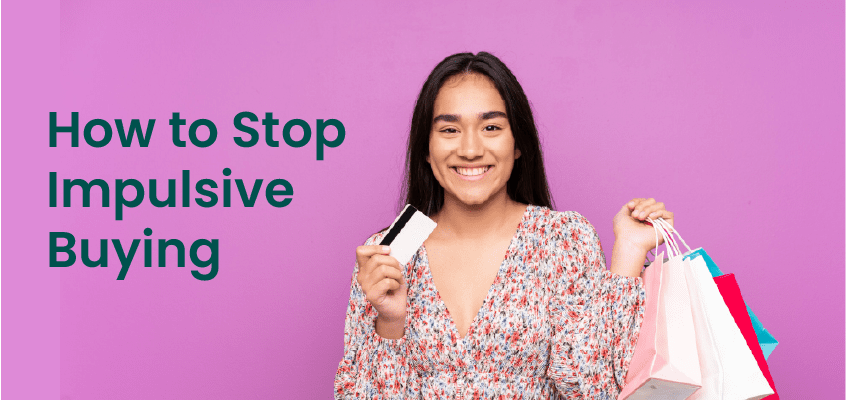We’ve all been there before: shopping online or in a store and seeing something we have to have. It’s an impulse buy, and we may not even think twice before handing over our hard-earned cash. But what exactly drives us to make these kinds of purchases? Learn more about impulsive buying in this blog!
What is impulsive buying?
Impulsive buying is purchasing without thinking it through or considering the consequences. Simply put, it’s the act of buying something on the spur of the moment without any prior thought or consideration.
Our impulses, such as excitement, happiness, or sadness, can drive us into impulsive buying. It can lead to financial problems, as we may spend more than we can afford. The behaviour can also create clutter in our homes if we buy many things we don’t need. impulse
If you engage in impulsive buying, you must take a step back and consider whether the purchase is a good idea. If not, resist the urge to buy and save your money instead!
Causes of impulsive buying
Many factors can contribute to impulsive buying behaviour. It may be a way to cope with negative emotions, and, for some people and others, it may be a way to relieve boredom. However, some of the most common causes of impulsive buying include the following:
- Need for instant gratification
When we see something we want, we often want it right away. It can be especially true when shopping online and can have the item shipped to us in just a few days.
- Desire to keep up with the competition
Social media makes it easy to compare our lives to others and feel like we are falling behind. It can lead to impulsive buying to keep up with friends or acquaintances.
- Lack of self-control
For some people, the act of buying something can be addictive, and this is often due to a lack of self-control or impulse control.
- Need for validation
Some people use shopping as a way to feel good about themselves. They may buy things they don’t need in an attempt to fill a void in their life.
- Dealing with emotions
As mentioned before, some people turn to shop to cope with negative emotions. It can be a way to distract yourself from your problems or make yourself feel better in the short term.
How can we stop impulsive buying?
There are many different causes of impulsive buying. From lousy mood to the need for instant gratification, we may want to engage in impulsive buying for any reason. Whatever the reason, impulsive buying can be a problem if we do not keep a check on it.
We can do a few things to save ourselves from impulsive buying. First, we should try to be more aware of our triggers. If we know what causes us to make impulse buys, we can be better prepared to resist the temptation. Secondly, we must create a budget and stick to it. Planning can help us avoid making spur-of-the-moment purchases that we can’t afford. Finally, we must find other ways than shopping to cope with our emotions.
While many factors can contribute to impulsive buying, the good news is that we can all learn to control our impulses.
Tips to avoid impulsive buying
Impulsive buying can be a dangerous habit, leading to debt and regret. But it doesn’t have to be. With a bit of self-control, we can avoid making impulse purchases. Here are seven tips to control this behaviour:
1. Make a list
If we know we’re going shopping; we should list the things we need to buy. It will help us stay focused and avoid buying things we don’t need.
2. Set a budget.
It’s essential to set a budget before we start shopping, which will help us stay within our means and avoid spending too much money.
3. Take time
Don’t rush into a purchase. If we take our time and think about it, we’re less likely to make an impulse buy.
4. Avoid sale traps
Sales can be tempting, but they don’t always offer good deals.
5. Wait it out
Whenever we are not so sure about a purchase, we should wait a day or two before buying it, and it will give us time to think about it and ensure it’s something we want.
6. Use cash
Paying with cash can help us stay within our budget and avoid impulse buys. When we use money, we can see exactly how much we have to spend.
7. Avoid shopping when feeling emotional
When we are feeling happy, sad, or angry, we’re more likely to make impulsive buying decisions because we are not reasoning in those vulnerable moments.
Conclusion
Impulsive buying is a form of spending where you purchase items on a whim without planning or thought. This type of spending can lead to serious financial problems, as it can be challenging to stick to a budget when we’re constantly buying things on a whim.
If you’re concerned about your spending habits, you must be aware of the signs of impulsive buying. These include a sudden urge to buy something, feeling like you have to have something as soon as you see it, and making purchases without considering whether or not you can afford it.
If you’re exhibiting any of these signs, it’s essential to take steps to curb your impulsivity. It may involve setting a budget and sticking to it, being more mindful of your spending, and avoiding places where you’re likely to make impulsive purchases.





